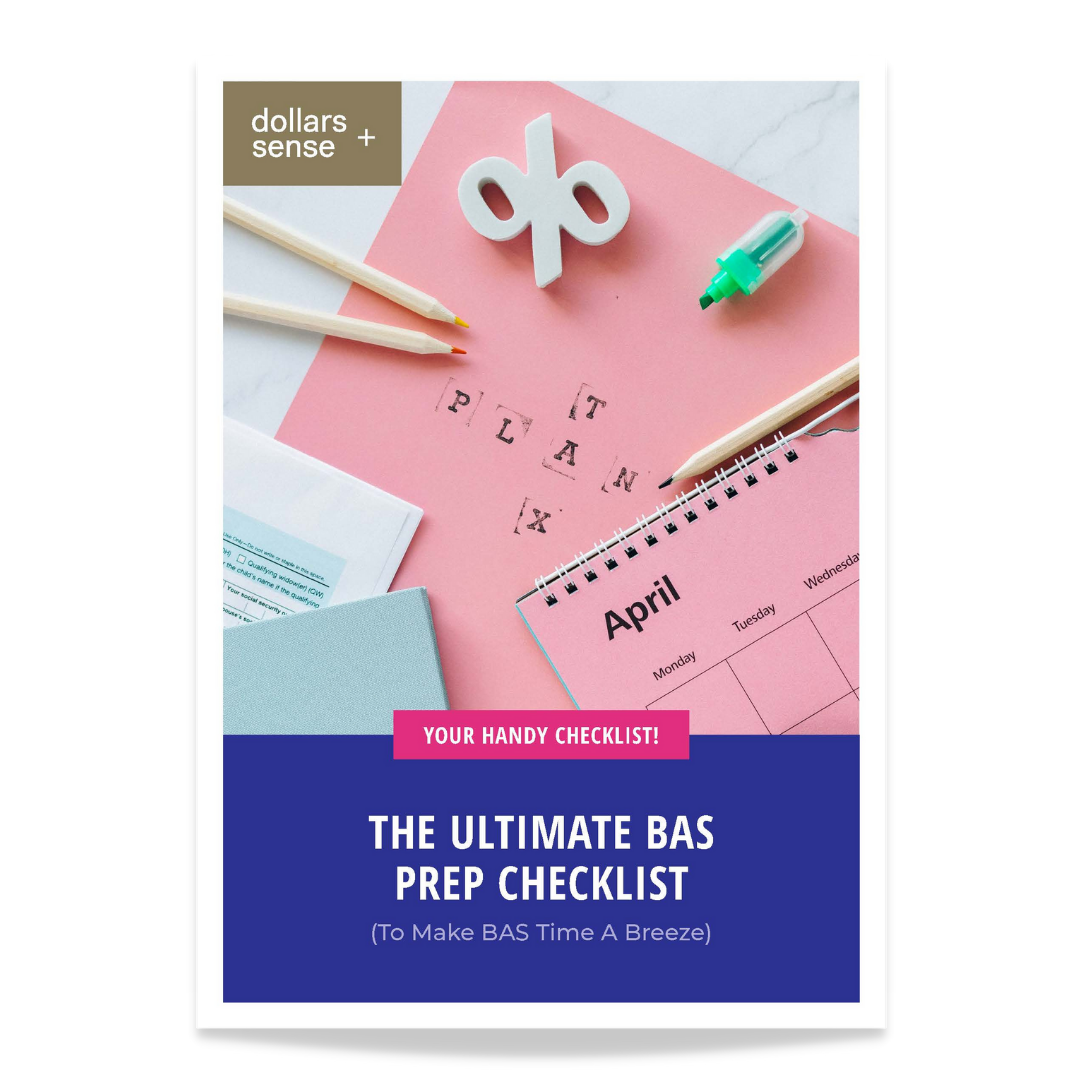In the bookkeeping services industry, we work alongside some of the most successful and ambitious startups in the game. Yet, for all of their triumphs, there’s one thing we know will have even the most fearless CEO running for the hills at the mere mention: BAS time.

As it turns out, many startup founders don’t completely understand their GST obligations, and in fact, many more have admitted to being afraid of doing their business bookkeeping at all.
Time and time again, they’ve come to us because they’ve put it off until the last second, or have started to receive some hairy communication from the ATO for doing it wrong. Shudder.
Lodging your GST can feel scary and overwhelming upon first glance. All those codes, rules and long-winded questions about your business’s legal entity? It seems like a minefield, with you smack bang in the middle of the war.
But we promise – your business bookkeeping is not as terrifying, or difficult, as you’ve been envisioning. Many years in the bookkeeping services industry has shown us that there are 5 things most startups get wrong with GST, and they’re easily fixed. Let’s take a look.
Overlooking the value of bookkeeping services
There’s a huge misconception about business bookkeepers: we’re dull, numbers-obsessed and cookie-cutter in our approach. While the numbers part is true, the rest couldn’t be further from reality.
Here at Dollars + Sense, we’re everyday people who laugh often, share terrible puns, embrace fantastic software and enjoy a healthy dose of work-life balance to make us more productive.
We’re thoughtful creatives who all come from different backgrounds, but our commonality is that we absolutely love championing the successes of our startup clients by providing tailored and specific insight to help them better their cash flow and finances.
No two clients are the same, and so the business bookkeeping we provide them isn’t either. We can work as intensively, or “cast-a-quick-eye-over” lightly as you’d like.

Startups that harbour misconceptions about stale, old-school startup bookkeepers miss out on the far-reaching benefits that effective cloud bookkeeping services from a modern BAS agent can provide. The confidence, the certainty, the support, the speed, the improved cash flow – it’s all a part of the package when you engage us.
Getting their tax codes wrong
This is where a lot of domino blocks fall down for many startup founders, because things get really technical, really quickly.
Think of the BAS item code as nothing more than a categorisation tool. Just like in the aisles of a supermarket, it’s the ATO’s way of clearly defining where their produce sits so they can easily stocktake when the BAS lodgements come rolling in.
When startup founders get the item codes in their chart of accounts wrong, they run the risk of being penalised by the ATO for providing false or misleading information, even though it was unintentional.
The item codes exist for everything from PAYG tax withheld (the income tax you’ve held onto when paying your employees), all of the purchases you’ve made where you’ve paid GST (you get this back), the GST you’ve collected from sales you’ve made, and even stickier categories like the GST you’ve deferred on imports.
To make things easier for you, we’ve compiled a FREE BAS Prep Checklist with a detailed graph to explain each item code and where you will find the data you need for it.
The checklist also includes options on how often to lodge your BAS, a simple step-by-step schedule to tick off before lodging, and even a few handy tips and tricks you wouldn’t otherwise know. Did we mention it was free?

Confusion between personal and business expenses
Understanding your startup entitlements is a crucial step in making a success of your business bookkeeping. Lodging personal expenses as business expenses is a very big no-no in the eyes of the ATO and they take infractions of it very seriously.
We regularly see startup founders lodging dinners (with alcohol), some forms of travel, entertainment and home-related expenses (when not all business is conducted at home, or where the expense lodged has no reasonable correlation with work activity), and they do so incorrectly.

While the lines of business and personal life can be murky, it’s important to get the distinction right.
Keep business and personal accounts separate, log expenses correctly as soon as you make them (or dedicate time to reconcile every month), and take care to understand what the ATO considers a genuine business expense, and what they don’t.
Remember: keeping them separate is a very sound strategy for protecting your personal assets in case the unthinkable happens. When business and personal expenditure collide, it makes it harder to prove the separation.
Setting up the wrong legal structure
Your legal entity defines how much tax you pay and when, so whether it’s as a company, partnership, trust, sole proprietor or other, setting it up properly can mean massive boosts to your cash flow, tax rate and how often you have to lodge.
Startups are notoriously fast to grow, so how you set it up in the beginning of your businesses’ lifecycle isn’t necessarily how it should be set up now.
For example, if your startup began as a sole proprietorship but ballooned into a full-scale, multi-employee operation, paying self-employment taxes will massively eat into your company profits. When you don’t know what kind of structure you should be operating within, though, you’ll never make the change.
Here at Dollars + Sense, we offer a free 15-minute discovery call with our founder, Helen Haines, to help you understand whether the bookkeeping services of a certified business bookkeeper would benefit you.
It’s a no-obligation chat to talk about your startup, employees, needs and time capacity and may be the best decision you make if you are working under the wrong tax entity.
Assuming it’s an annual exercise
Typically, startups are required to pay tax on a monthly, or quarterly basis. From an organisational point of view, this makes a lot of sense and can actually be very helpful in keeping you on top of your business finances.
For any startups turning over less than $75,000 per annum, lodging annually is possible, but only if they anticipate to reach that threshold before the 31st October.
In this example, they are voluntarily registered for GST because they expect to reach the threshold, although they haven’t yet.
Many startup founders, especially when they come from normal employee backgrounds, assume that lodging their tax return is a once-a-year event, like it was before they joined the ranks of entrepreneurship.
Understanding your lodgement frequency is very important, and it’s something we cover in our free PDF download, the BAS Prep Checklist, including a quarterly lodgement date schedule for you to bookmark and keep handy somewhere. You’ll be better off for reading it, so don’t delay.

Ultimately, getting your tax obligations right is one of those things that will directly impact your startup’s success, and now that you have the tools to go forth with it, it’s time to master your BAS, just as you have with everything else in your business journey so far. Happy business bookkeeping!
About Helen Haines and Dollars + Sense
Helen Haines is the director, founder and BAS agent of choice for Dollars + Sense. After 20 years trailblazing in small business and corporate leadership, Helen is happiest utilising her unique skill-set to help busy small businesses across the country effectively manage their finances, so they can grow the thing they love the most. Offering everything from cloud-based bookkeeping, one-off BAS statement lodgements, Xero training, setup and more, Helen and the team offer tailored and personalised services to help you navigate the world of GST and bookkeeping with ease. Now, that’s your dollars making sense.


Recent Comments